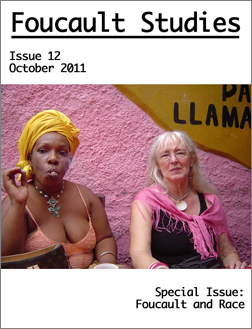Welfare and Foreign Aid Practices in the Contemporary United States: a Governmental Study
DOI:
https://doi.org/10.22439/fs.v0i12.3340Abstract
This article aims to expose the main governmental shifts in recent American history (1961-2000) by examining two programs: the Assistance to Families with Dependent Children (AFDC) and the Agency for International development (US-AID). Through the exploration of primary and secondary sources, we analyse the production, organisation and circulation of governmental practices in the realms of both domestic and foreign policy. In the American context, practices of government typically revolve around freedom, efficiency models and individual responsibility. Throughout the analysis, we find that the general critiques which have guided reforms and experiments in both areas converge around the same elements. This testifies to the fact that the reflexions and technical models directed at the optimal management of populations are more far-reaching than they first appear. Moreover, the historical transformations in welfare and foreign aid practices bear out the increasingly disciplinary nature of the administration and objectification of the poor, both within the United States and internationally.Downloads
Published
2011-09-12
How to Cite
Fournier, P. (2011). Welfare and Foreign Aid Practices in the Contemporary United States: a Governmental Study. Foucault Studies, (12), 147–170. https://doi.org/10.22439/fs.v0i12.3340
Issue
Section
Articles
License
Authors retain copyright to their work, but assign the right of the first publication to Foucault Studies. The work is subject to a CC BY-NC-ND 4.0 license, but despite these restrictions, authors can take for granted that Foucault Studies will permit articles published in Foucault Studies to be translated or reprinted in another format such as a book providing a full reference is made to Foucault Studies as the original place of publication.



